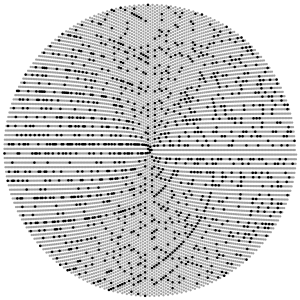 The Los Angeles Times reports on an article from Science that shows that analytical thinking and religious belief may be inversely proportional. That may not be news to some, but at least one of the example problems (that the religious failed to complete at higher rates than the non-religious) is quite interesting:
The Los Angeles Times reports on an article from Science that shows that analytical thinking and religious belief may be inversely proportional. That may not be news to some, but at least one of the example problems (that the religious failed to complete at higher rates than the non-religious) is quite interesting:
A bat and a ball cost $1.10 in total. The bat costs $1.00 more than the ball. How much does the ball cost?
Here there is an initial intuitive leap that says that $1 more than 10 cents is precisely $1.10. Therefore, the ball costs $0.10 or 10 cents. It is easy and clear, but the math undermines that result:
Bat + Ball = $1.10
Bat = Ball + $1.00
(Ball + $1.00) + Ball = $1.10
2*Ball + $1.00 = $1.10
2*Ball = $0.10
Ball = $0.05
Bat = $1.05
This result makes sense if one considers that the cost of the bat must be greater than $1.00 because it is $1.00 more than the ball (and not $1.00 itself). But it is obscured by the initial intuitive leap based on simple subtraction.
But that example is a pretty hard one to reconcile concerning historical and faith-based judgments. I doubt that there is good reason to suspect that mathematical prowess and intuitive dispositions about the costs of things correlates with faith decisions because I suspect that there are other reasons that the faithful believe what they believe. Specifically, most religious faithful believe because they were told to believe by their parents or community. The fact that they do so doesn’t seem to translate into mathematical prowess or ineptness. They may very well score more poorly on these kinds of results because of other individual differences like that those who are more predisposed to critical analytical skills are less likely to have come from highly religious backgrounds, and vice versa.
Interestingly, the subsequent reported experiments appear to show that religious belief might be mutable by more analytical tasks, which is a different sort of argument altogether, but one that shows that belief is more variable than our folk psychology often seems to suggest.